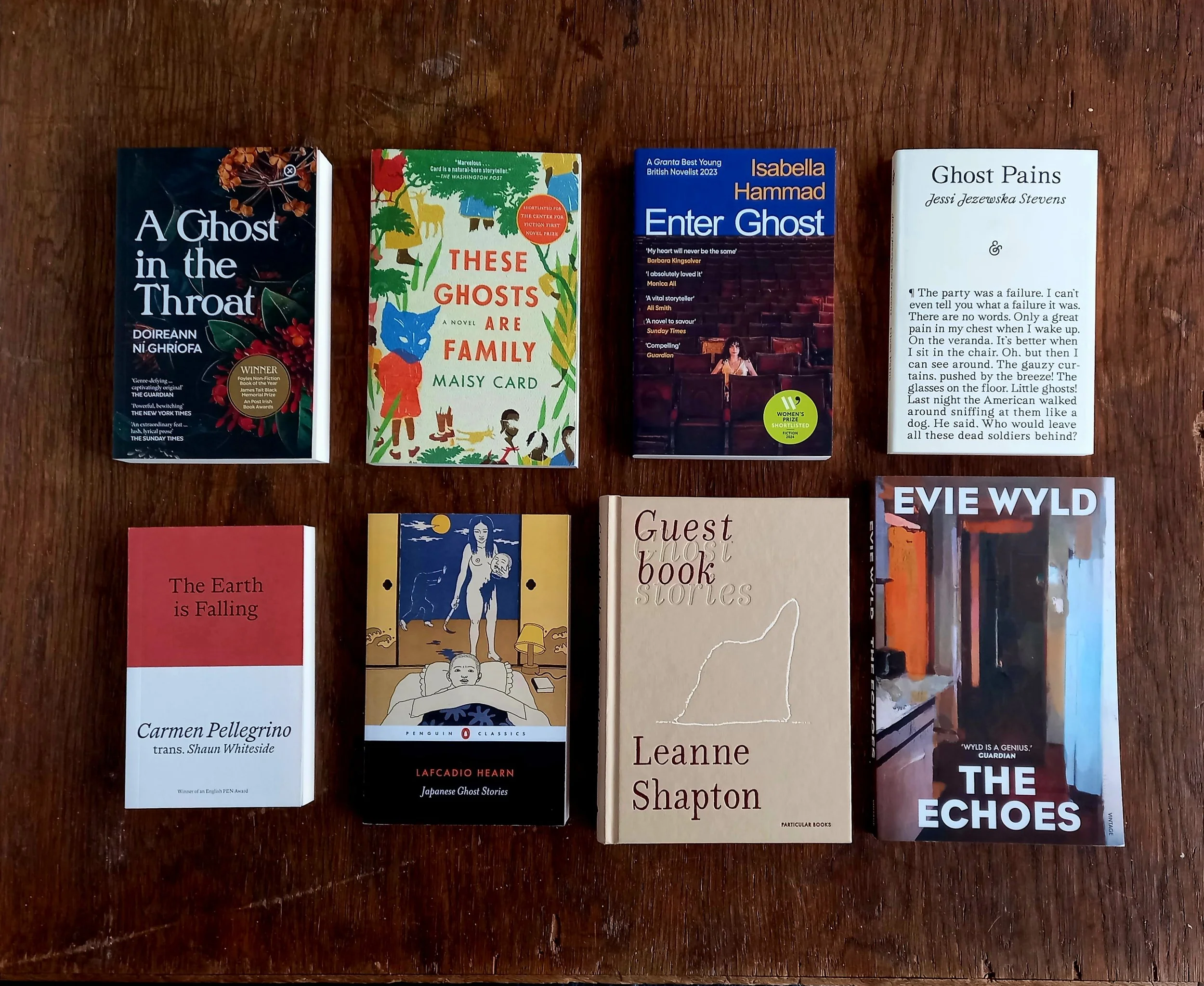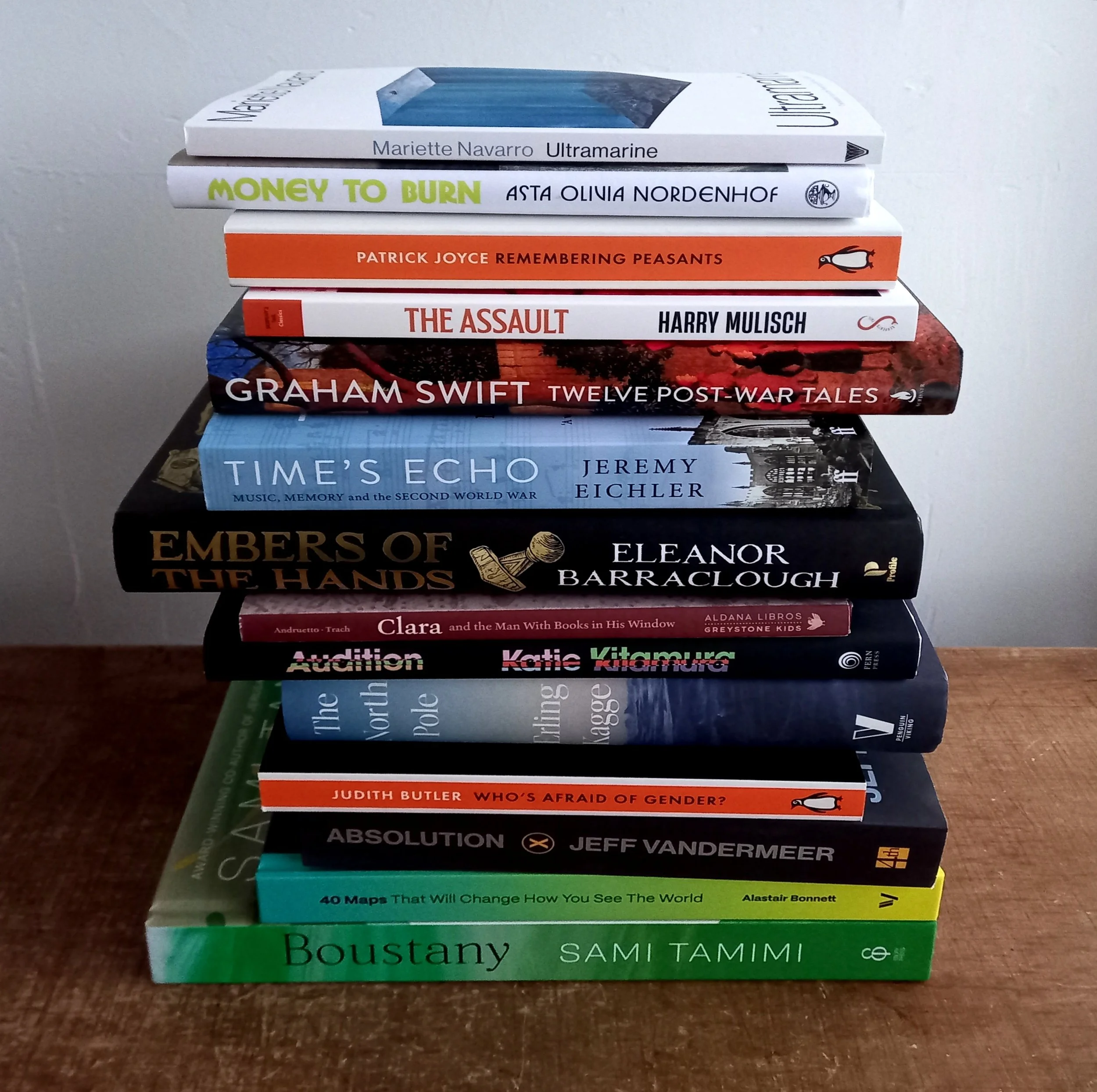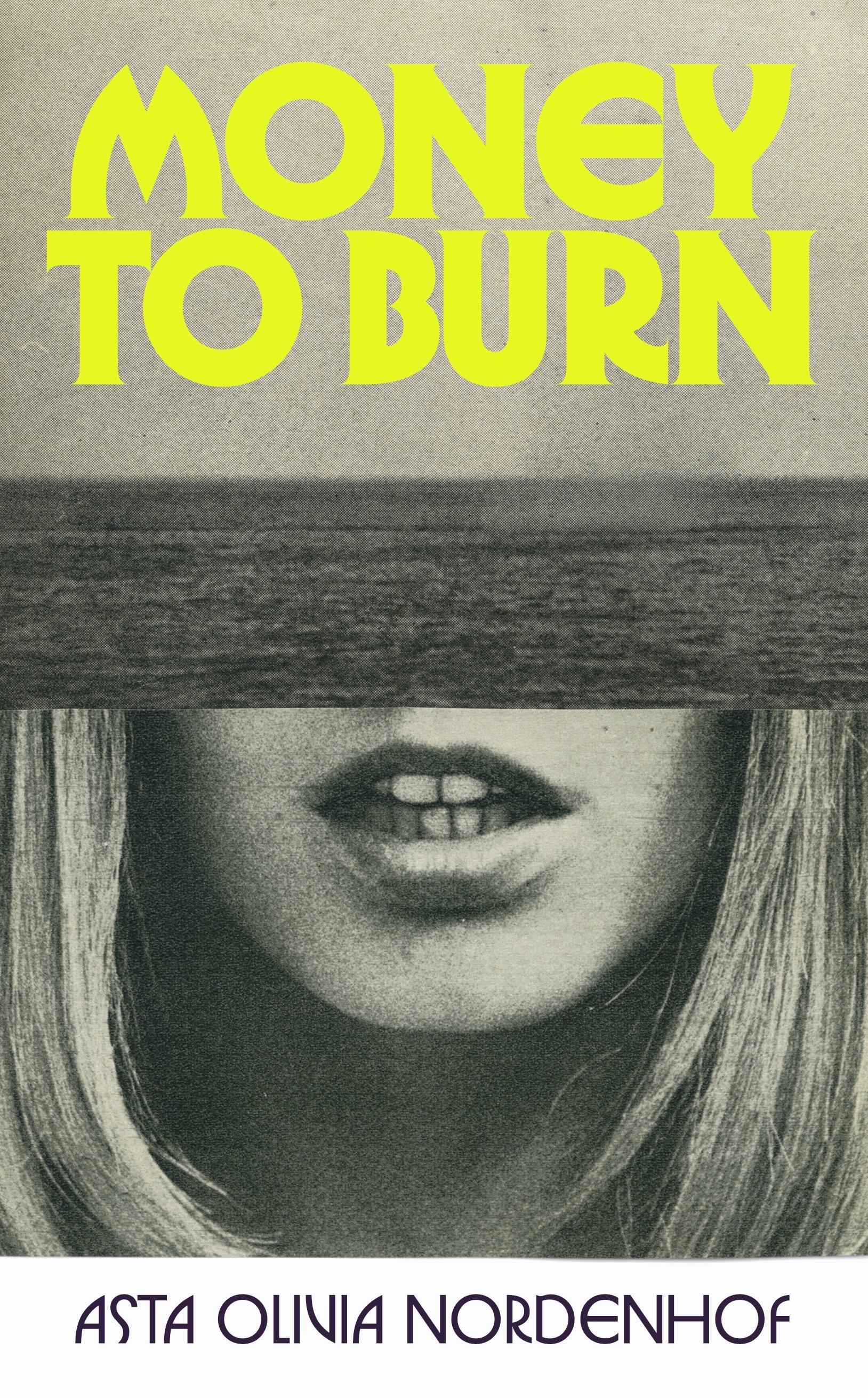New books for a new month! Take your pick, and click through to our website to secure your copies. We can dispatch your books by overnight courier or have them ready to collect from our door.
Heart Lamp by Banu Mushtaq (translated from Kannada by Deepa Bhasthi) $37
In these twelve stories, Mushtaq exquisitely captures the everyday lives of women and girls in Muslim communities in southern India. Published originally in the Kannada language between 1990 and 2023, praised for their dry and gentle humour, these portraits of family and community tensions testify to Mushtaq’s years as a journalist and lawyer, in which she tirelessly championed women’s rights and protested all forms of caste and religious oppression. Written in a style at once witty, vivid, colloquial, moving and excoriating, it’s in her characters — the sparky children, the audacious grandmothers, the buffoonish maulvis and thug brothers, the oft-hapless husbands, and the mothers above all, surviving their feelings at great cost — that Mushtaq emerges as an astonishing writer and observer of human nature, building disconcerting emotional heights out of a rich spoken style. Her opus has garnered both censure from conservative quarters as well as India’s most prestigious literary awards; this is a collection sure to be read for years to come. [New paperback edition]
Winner of the 2025 International Booker Prize
The Book of Records by Madeleine Thien $38
In ‘The Sea’, a sprawling, mysterious building-complex that endlessly receives migrants from everywhere and seems to exist somewhere outside of normal space and time, adolescent Lina cares for her ailing father. Having landed at The Sea with only what could be carried by hand, Lina grows up with nothing but a trio of books to read--three volumes in a series about the lives of famous ‘voyagers’ of the past. Soon, however, she discovers three eccentric neighbours in the building who have stories of their own to share. These neighbours are Bento (who bears an uncanny resemblance to Baruch Spinoza), a Jewish scholar in seventeenth-century Amsterdam who was excommunicated for his radical thought; Blucher (whose life mirrors Hannah Arendt), a philosopher whose academic promise in 1930s Germany became a quest to survive Nazi persecution; and Jupiter (or shades of Du Fu), a poet of Tang Dynasty China whose brilliance went unrecognised by the state, and whose dependence on fickle patrons barely sustained him while lesser artists thrived. As she grows up in the building, Lina spends many hours listening to the fascinating tales of these friends. But it is only when she is finally told her father's account of how the two of them came to reside in The Sea that she truly understands the unbearable cost of betrayal in her own life. And the combined force of these stories soon sets her on her own path into the unknown future. The Book of Records holds a mirror to the idea of fate in history, interrogates questions of legacy, explores how the political factors of a collective moment may determine an individual's future, and beautifully shows the importance and power of art and intellectual endeavour. [Paperback]
"Deeply humane. In an aching, dreamlike narrative that overlaps distant centuries and geographies to chart cycles of authoritarianism and loss, Thien uncovers glimmers of community among disparate individuals. With her imagined worlds, incandescent prose and malleable sense of time and history, Thien strikes worthy comparisons to Italo Calvino, Walter Benjamin, Gaston Bachelard and Ali Smith's seasonal quartet. This staggering novel blurs the line between fact and fiction to underscore the importance of storytelling itself, as a practice of endurance, and resistance. Try to read without weeping profusely." —New York Times Book Review
Memories of a Catholic Girlhood by Mary McCarthy $37
Mary McCarthy, one of the leading American intellectuals of the twentieth century, skewers her strict Catholic upbringing in this witty and compelling memoir, one of her major works. Blending memories and family myths, Mary McCarthy takes us back to the 1920s, when she was orphaned into a world of relations as colourful, potent and mysterious as the Catholic religion. There was her Catholic grandmother who combined piousness with pugnacity, and her veiled Jewish grandmother who mourned the disastrous effects of a face-lift; there was wicked Uncle Myers who beat her for the good of her soul, and Aunt Margaret who laced her orange juice with castor oil, and taped her lips at night to prevent unhealthy 'mouth-breathing'. 'Many a time in the course of doing these memoirs,' Mary McCarthy says, 'I have wished that I were writing fiction.' But these were the people, along with the Ladies of the Sacred Heart convent school, who inspired her engaging perception, her devastating sense of the sublime and ridiculous, and her witty, novelist's imagination. Memories of a Catholic Girlhood is a major work by one of the leading American intellectuals of the twentieth century — witty, scathing, piercingly insightful and stylishly written. New edition, with an introduction by Colm Tóibín. [Paperback with French flaps]
”When my friends and I were in our twenties in the 1950s, we read two writers — Colette and Mary McCarthy — as others read the Bible: to learn better who we were and how, given the constraint of our condition, we were to live.” —Vivian Gornick
”Published in 1957, Memories of a Catholic Girlhood is considered by some to be the best of her two dozen books, including eight novels and several volumes of essays, reportage and criticism. Its superiority derives not only from the passionate sense of justice that imbues the depiction of her ghastly Cinderella childhood, but also the singular circumstances of its composition.” —J. Michael Lennon, TLS
”Superb. So heartbreaking that in comparison Jane Eyre seems to have got off lightly.” - Anita Brookner
Hollow Land: Israel’s architecture of occupation by Eyal Weizman $45
In this journey from the deep subterranean spaces of the West Bank and Gaza to their militarised airspace, Eyal Weizman unravels Israel's mechanisms of control and its transformation of the Occupied Territories into a theoretically constructed artifice, in which all natural and built features function as the weapons and ammunition with which the conflict is waged. Weizman traces the development of these ideas, from the influence of archaeology on urban planning, Ariel Sharon's reconceptualisation of military defence during the 1973 war, through the planning and architecture of the settlements, to contemporary Israeli discourse and practice of urban warfare and airborne targeted assassinations. In exploring Israel's methods to transform the landscape and the built environment themselves into tools of domination and control, Hollow Land lays bare the political system at the heart of this complex and terrifying project of late-modern colonial occupation. [Paperback]
Capitalism and Nothingness: Critical theory in uncertain times by Peter Fleming $44
Drawing on Marcuse, Adorno, Arendt and a variety of other critical social philosophers, this book introduces us to a familiar character amid the wreckage of the post-pandemic economy: no-dimensional man. A cousin of Marcuse's one-dimensional man, they are a figure so compressed by the unending present of capitalism that they have ceased to be genuinely present in any ethical or political sense. This is Peter Fleming's brilliant analysis of the psychological and institutional mechanisms that drive the demise of capitalist democracies. The scene is set in no-dimensional man's natural habitats — the modern office, the corporate suite, the government bureau and the corporate university. In these treacherous climes Fleming reveals the dark power relations currently shaping the post-industrial system. This deep dive into the post-industrial pit explains the failure of capitalism in terms of its most contagious symptoms, including micro-jobs, multinational spread, shadow banking, financial predation, the working poor, and government by algorithm. Beset by every malaise of modern economic institutions, from cognitive dissonance to bleak performance metrics and almost deliberate vacuity, no-dimensional man is a living mirror image of the new culture of nothingness characterising capitalism today. [Paperback]
”Splicing genres to brilliant effect, Peter Fleming's critically fuelled revolutionary pessimism delivers shards of humour in the midst of a world ruined by feckless managers and gormless agents of industry. Capitalism and Nothingness furnishes diagrams of scenario planning grafted to the shadow of the apocalypse.” —Ned Rossiter, Professor of Communication and Director of Research, Institute for Culture and Society, Western Sydney University
The Destruction of Palestine Is the Destruction of the Earth by Andreas Malm $25
Israel’s pulverization of Gaza since October 7, 2023 is not only a humanitarian crisis, but an environmental catastrophe. Far from the first event of its kind, the devastation Israel has inflicted on Palestine since October 2023 has merely ushered in a new phase in a long history of colonisation and extraction that reaches back to the nineteenth century. In this book, Andreas Malm argues that a true understanding of the present crisis requires a longue duree analysis of Palestine's subjugation to fossil empire. Returning to the British empire’s first use of steam-power in war, in which it destroyed the Palestinian city of Akka, Malm traces the development of Britain s fossil empire and shows how this enduring commitment to fossil energy continues to drive Western support for the destruction of Palestine today. [Paperback with French flaps]
”Malm's analysis, which concludes with the current genocide in Gaza and Palestinian resistance against colonialism, offers a new approach towards understanding the role imperialism plays in maintaining the Zionist colonial project and one that may be overlooked due to the more immediate focus on the depletion of Palestinian territory and the Palestinian people themselves.” —Ramona Wadi, Middle East Monitor
The Original Daughter by Jemimah Wei $38
Singapore, 1996. Before Arin, Genevieve Yang was an only child. Living with her parents and grandmother in a single-room flat in Bedok, Genevieve is saddled with an unexpected sibling when Arin appears, the shameful legacy of a grandfather long believed to be dead. Gen and Arin grow up as sisters in Singapore: a place where insistence on achievement demands constant sacrifice in the realms of imagination and play. As the sisters struggle toward individual redemption, their story reveals the fault lines of Singaporean society, our desperate need for acceptance, and our yearning to be loved. [Paperback]
”Fiery, funny, and incisive, The Original Daughter is at its core a ghost story. Once, invisibility was the hallmark of the working class, but Jemimah Wei knows in today's world, where an internet connection allows one to walk through walls, be seen, disappear, and haunt from beyond the analog grave, a soulless transparency is power. A societal privilege ironically afforded to most everyone. This novel adroitly, yet playfully, turns the ways we see cultural appropriation, nepotism, and identity upside down. What a wise and wonderful read.” —Paul Beatty
Sicily: Recipes from an Italian island by Enza Genovese $65
From the bustling streets of Palermo to the colourful markets of Cefalu, from arancini to cannoli, Sicily is home to some of the world's freshest, most delicious food. In this collection of recipes curated by Sicilian Enza Genovese, travel the entire island of Sicily in food, learning how to easily prepare the tastiest hallmark dishes of this Italian region, alongside some new favourites, at home. Chapters include: Antipasti: arancini, Nonna's eggplant parmigiana, Sicilian focaccia. Pasta: Casarecce alla Norma, spaghetti with ricotta and pistachios, sardine bucatini. Risotto and couscous: artichoke and pea risotto, Trapanese couscous, lobster risotto. Meat: meatballs in white sauce, pork ragu, vegetable polpettone. Fish: stuffed calamari, swordfish with capers and almonds, tuna millefoglie. [Hardback]
The Bookshop Woman by Nanako Hanada (translated from Japanese by Cat Anderson) $28
Nanako Hanada's life has hit rock bottom. Separated from her husband, she's living between 4-hour capsule hostels and pokey internet cafes in Tokyo. Work is going no better as sales at her eccentric bookstore dwindle. Reading is the only thing keeping her alive. That's until Nanako downloads an app called Perfect Strangers which offers 30 minutes with someone you'll never see again. Introducing herself as a sexy bookseller, she recommends strangers 'the book that will change their life'. In the ensuing year, Nanako meets hundreds of people, some of whom want more than just a book. The Bookshop Woman offers a glimpse into the quirky side of Tokyo in this story about the beauty of free diving into a book and resurfacing on the last page, ready to breathe a different kind of air. [Paperback]
Abundance: How we build a better future by Ezra Klein and Derek Thompson $40
In Abundance, veteran journalists Ezra Klein and Derek Thompson reveal the structural, economic and political forces that have led to the America, and much of the liberal world, of today: where scarcity and preservation drive the agenda, and we have forgotten how to deliver on big ideas. Decades of slashing immigration, off-shoring manufacture, preventing house-building and stalling ambitious infrastructure projects like high-speed rail means America has a shortage of workers, houses, innovative products and climate-change solutions. It's a story repeated across the Western World. To progress on the greatest challenges of our time, from housing to climate change, healthcare to infrastructure, progressives need a vision of abundance, and the ability and willingness to enact transformative strategies. Here, the authors lay out the barriers to consequential action, and how we can overcome them to actively build a better, more abundant future. [Paperback]
What Art Does: An unfinished theory by Brian Eno and Bette A. $37
Why do we need art? What Art Does is an invitation to explore this vital question. It is a chance to understand how art is made by all of us. How it creates communities, opens our worlds, and can transform us. Curious and playful, richly illustrated, full of ideas and life, it is an inspiring call to imagine a different future. This book can reshape our understanding of how art and our lives are intrinsically linked. These are planet-sized ideas in a pocket-sized package. [Illustrated hardback]
"Growing up in the 1960s and 1970s I wasn't afraid of Art even though my family was poor and undereducated and knew nothing about it. I was excited and wanted to join in, even to be part of contemporary art-making. I lost that confidence along the way. Became scared of Art, felt excluded by it. Reading What Art Does has helped me regain that confidence by reminding me we're all making art all the time. That Art is for us and by us." —Viv Albertine
"Remarkable for its ability to render sophisticated and sometimes slippery ideas in clear, accessible language. The most powerful ideas here present art as conduit to community, as a way to be vulnerable, to surrender. This is a beautiful book." —Peter Murphy, Irish Times































































































